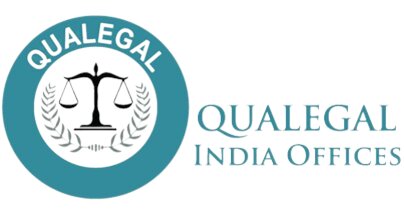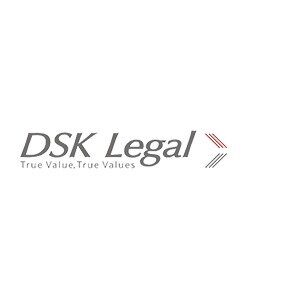Best Renewable & Alternative Energy Lawyers in New Delhi
Share your needs with us, get contacted by law firms.
Free. Takes 2 min.
List of the best lawyers in New Delhi, India
About Renewable & Alternative Energy Law in New Delhi, India
Renewable and alternative energy has become an essential part of India’s strategy to address climate change and reduce dependency on traditional fossil fuels. New Delhi, as the capital city and a major metropolis, has been at the forefront of adopting policies aimed at promoting clean energy sources, including solar, wind, hydro, bioenergy, and waste-to-energy solutions. The legal environment in New Delhi is shaped by national laws, state policies, and local regulations that guide the generation, distribution, and consumption of renewable energy. The increase in government incentives, ambitious renewable energy targets, and a growing market for green energy products has also contributed to the creation of a specialized field of renewable and alternative energy law.
Why You May Need a Lawyer
Legal advice in renewable and alternative energy can be essential for individuals, entrepreneurs, businesses, and housing societies navigating the rapidly evolving regulatory and policy landscape. Common situations where a lawyer can help include:
- Compliance with local and national regulations for setting up solar panels or other renewable energy installations
- Drafting and reviewing Power Purchase Agreements (PPA) and other contracts with energy vendors or government agencies
- Advising on permits and licensing for renewable energy projects
- Resolving disputes related to land acquisition or environmental clearances
- Managing incentives, subsidies, and benefits under government schemes
- Intellectual property protection for green technology inventions
- Handling litigation or arbitration over contracts or regulatory compliance
- Seeking approvals for grid connections or net metering setups
A lawyer can provide crucial guidance at every stage, whether you are an individual investor, a startup, a large company, or a cooperative group.
Local Laws Overview
The regulatory framework for renewable and alternative energy in New Delhi is a combination of central laws, state policies, and municipal bylaws. Key aspects include:
- Electricity Act, 2003: This central law governs the generation and distribution of electricity, including renewable energy. It mandates the promotion of renewable sources and provides for open access to the grid.
- National Solar Mission: Part of the National Action Plan on Climate Change, this policy aims to promote solar power generation and manufacturing in India.
- Delhi Government Policies: The Government of NCT of Delhi offers policies such as the Delhi Solar Policy, which provides incentives for installing rooftop solar systems and mandates for certain buildings to use solar energy.
- Delhi Electricity Regulatory Commission (DERC): The DERC issues regulations and guidelines for grid connectivity, net metering, and tariff setting for renewable energy projects in the city.
- Building and Safety Codes: Local municipal rules prescribe the structural and safety requirements for installing renewable energy systems, especially on rooftops and commercial premises.
- Environmental Clearances: Projects must comply with environmental laws, which may require clearances for certain types of renewable installations, especially larger or more industrial projects.
The legal landscape is continually evolving as technology advances and new government incentives are introduced. Staying updated and compliant often requires legal expertise.
Frequently Asked Questions
What is renewable and alternative energy?
Renewable energy comes from naturally replenished sources like sunlight, wind, water, and biomass. Alternative energy may include these sources as well as others that are alternatives to traditional fossil fuels, such as waste-to-energy.
What permits do I need to install a rooftop solar system in New Delhi?
You typically need clearance from your local municipal body, a no objection certificate from your electricity provider, and compliance with safety and building norms. For larger systems, grid connectivity and net metering approvals are also required.
Are there government incentives for installing renewable energy in New Delhi?
Yes, the Delhi government and central authorities offer financial subsidies, tax rebates, and other incentives for solar and other renewable energy installations, especially for residential and institutional projects.
What is net metering and how does it work?
Net metering allows you to sell excess electricity generated from your renewable energy installation, such as solar panels, back to the grid. The surplus energy is subtracted from your energy bill or credited for future use.
Do I need legal assistance for drafting a Power Purchase Agreement?
While not legally mandatory, legal assistance is highly recommended to ensure that your interests are protected, and all important clauses related to tariffs, liability, term, and dispute resolution are properly included.
Can businesses in New Delhi set up their own renewable energy plants?
Yes, subject to compliance with zoning, environmental, and safety regulations. Companies often need permits, environmental clearances, and permission from electricity authorities.
What are the main laws governing renewable energy in Delhi?
The Electricity Act, 2003, Delhi Electricity Regulatory Commission regulations, Delhi Solar Policy, and various municipal and environmental bylaws largely govern the sector.
Is it possible to litigate a dispute over renewable energy contracts?
Yes, disputes can be brought before civil courts, adjudicated by arbitration, or sometimes resolved by regulatory commissions, depending on the terms of the contract and the nature of the dispute.
How does land acquisition for renewable energy projects work?
Land acquisition must comply with state and central regulations, including consent from authorities, adherence to zoning laws, and sometimes public consultations and environmental assessments.
Can housing societies or residential complexes install shared renewable energy systems?
Yes, housing societies can collectively install renewable energy systems like solar panels. They must follow applicable laws, secure permissions, and arrange for connection to the grid and net metering.
Additional Resources
Here are some organizations and governmental bodies that can assist with renewable and alternative energy queries in New Delhi:
- Delhi Electricity Regulatory Commission (DERC)
- Delhi Energy Development Agency (DEDA)
- Ministry of New and Renewable Energy (MNRE), Government of India
- Energy Efficiency and Renewable Energy Management Centre (EEREMC), Government of NCT of Delhi
- Bureau of Energy Efficiency (BEE)
- Local branches of the Confederation of Indian Industry (CII)
- Indian Renewable Energy Development Agency (IREDA)
- Local Bar Associations specializing in energy law
Next Steps
If you require legal advice or assistance concerning renewable and alternative energy in New Delhi, consider the following steps:
- Define your project or concern clearly and gather any relevant documents, including property papers, contracts, or correspondence with officials.
- Identify the specific issue or stage where legal intervention is needed - whether compliance, permits, contracts, or dispute resolution.
- Consult with a qualified lawyer who specializes in energy law or has experience with renewable energy projects in New Delhi.
- Ask the lawyer about their prior experience in handling similar cases or projects.
- Engage the lawyer to help you draft necessary documents, secure permits, ensure compliance, and represent you before authorities if required.
- Keep updated with policy changes, as renewable energy laws are subject to regular amendments and new incentives.
Early legal consultation can minimize risks, prevent costly errors, and help your renewable or alternative energy project succeed in compliance with the law.
Lawzana helps you find the best lawyers and law firms in New Delhi through a curated and pre-screened list of qualified legal professionals. Our platform offers rankings and detailed profiles of attorneys and law firms, allowing you to compare based on practice areas, including Renewable & Alternative Energy, experience, and client feedback.
Each profile includes a description of the firm's areas of practice, client reviews, team members and partners, year of establishment, spoken languages, office locations, contact information, social media presence, and any published articles or resources. Most firms on our platform speak English and are experienced in both local and international legal matters.
Get a quote from top-rated law firms in New Delhi, India — quickly, securely, and without unnecessary hassle.
Disclaimer:
The information provided on this page is for general informational purposes only and does not constitute legal advice. While we strive to ensure the accuracy and relevance of the content, legal information may change over time, and interpretations of the law can vary. You should always consult with a qualified legal professional for advice specific to your situation.
We disclaim all liability for actions taken or not taken based on the content of this page. If you believe any information is incorrect or outdated, please contact us, and we will review and update it where appropriate.

















